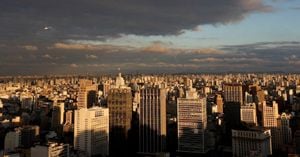The IPCA (Índice Nacional de Preços ao Consumidor Amplo) has dropped to just 0.16% for January 2025, marking the lowest rate recorded for this month since the inception of the Real Plan back in 1994. This lower rate is significantly below the December inflation rate of 0.52%, as reported by the Instituto Brasileiro de Geografia e Estatística (IBGE) on January 11, 2025.
Fernando Gonçalves, manager at IBGE, noted the major contributing factor to this significant dip: residential energy prices, which fell by 14.21%. This decrease alone accounted for a notable reduction of 0.55 percentage points (p.p.) from the overall inflation rate. The decline was attributed to the credit from the Bônus de Itaipu, which was applied to the electric bills issued during the month of January. Consequently, the housing group experienced a decline of 3.08%, impacting the overall index negatively by 0.46 p.p.
Despite this drop being notable, other segments of inflation tell a different story. The transportation sector recorded price increases of 1.30%, primarily driven by spikes in airfare prices, which surged by 10.42%, alongside urban bus fares rising by 3.84%. Meanwhile, the food and beverage segment marked its fifth consecutive increase, rising by 0.96%, contributing 0.21 p.p. to the overall inflation rate for January. Key items were identified, including hefty increases for carrots (up by 36.14%), tomatoes (increasing by 20.27%), and ground coffee (up by 8.56%).
Conversely, certain staples saw price drops, with potato prices decreasing by 9.12% and long-life milk prices falling by 1.53%. Notably, dining out saw inflation decelerate from 1.19% in December to 0.67% this month, indicating lower price hikes for both snacks (0.94%) and meals (0.58%).
The variations of inflation weren’t uniform across the country. Among the 16 localities tracked, Aracaju experienced the highest increase, recorded at 0.59%, predominantly driven by the steep rise of 13.65% for airfares. Meanwhile, Rio Branco noted the largest decline at -0.34%, closely linked to the aforementioned sharp reduction of 16.60% for residential electricity rates.
While the IPCA shows positive signs for some areas, the INPC (Índice Nacional de Preços ao Consumidor), which gauges inflation for families with incomes up to five minimum wages, demonstrated stability with no variation at 0.0% for January. The 12-month accumulated inflation on this index settled at 4.17%, lower than 4.77% from the previous period.
Even though food prices remained elevated, experiencing slower growth from 1.12% to 0.99% going from December to January, there was also a notable dip of 0.33% for non-food items after registering modest gains the month before. Regionally, significant shifts were observed: Salvador topped the INPC variations at 0.47%, buoyed by public transport costs increasing by 6.00%. On the other end, Rio Branco recorded the largest deflation at -0.49%.
Fernando Gonçalves acknowledged, "The null variation of the INPC, indicating stability from December to January, is also representative of varying price changes—some increasing, like food, and others decreasing, like electricity." This nuanced perspective emphasizes the mixed economic signals within the country's inflation metrics.
The forthcoming IPCA report for February is eagerly anticipated, set to be released on March 12. Its insights will be pivotal as consumers and analysts seek to navigate the changing cost dynamics within Brazil’s multifaceted economy.



